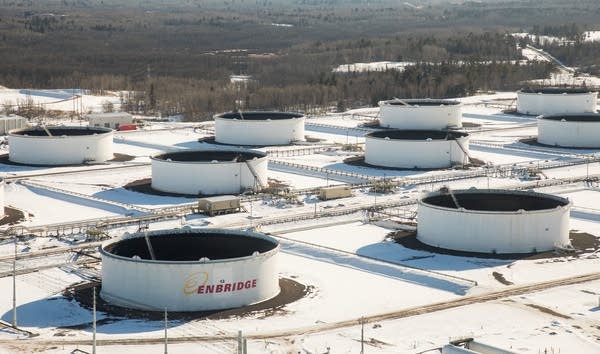Enbridge proposes another pipeline replacement across Fond du Lac reservation

Enbridge's Superior Terminal in February 2018 in Superior, Wisc.
Derek Montgomery for MPR News 2018
Go Deeper.
Create an account or log in to save stories.
Like this?
Thanks for liking this story! We have added it to a list of your favorite stories.


